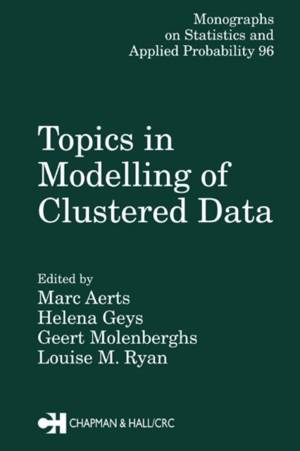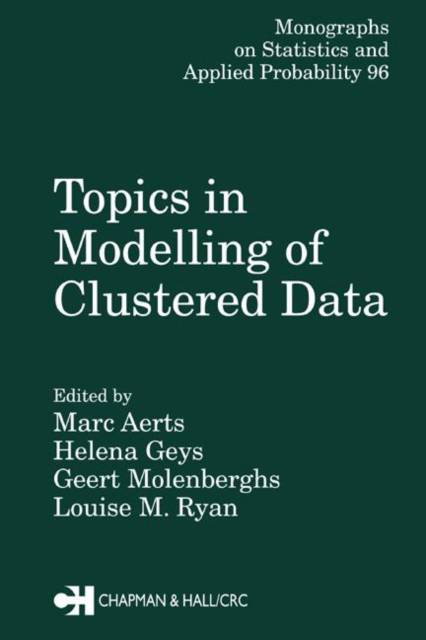
- Afhalen na 1 uur in een winkel met voorraad
- Gratis thuislevering in België vanaf € 30
- Ruim aanbod met 7 miljoen producten
- Afhalen na 1 uur in een winkel met voorraad
- Gratis thuislevering in België vanaf € 30
- Ruim aanbod met 7 miljoen producten
Zoeken
Topics in Modelling of Clustered Data
€ 216,45
+ 432 punten
Omschrijving
Many methods for analyzing clustered data exist, all with advantages and limitations in particular applications. Compiled from the contributions of leading specialists in the field, Topics in Modelling of Clustered Data describes the tools and techniques for modelling the clustered data often encountered in medical, biological, environmental, and social science studies. It focuses on providing a comprehensive treatment of marginal, conditional, and random effects models using, among others, likelihood, pseudo-likelihood, and generalized estimating equations methods. The authors motivate and illustrate all aspects of these models in a variety of real applications. They discuss several variations and extensions, including individual-level covariates and combined continuous and discrete outcomes. Flexible modelling with fractional and local polynomials, omnibus lack-of-fit tests, robustification against misspecification, exact, and bootstrap inferential procedures all receive extensive treatment. The applications discussed center primarily, but not exclusively, on developmental toxicity, which leads naturally to discussion of other methodologies, including risk assessment and dose-response modelling. Clearly written, Topics in Modelling of Clustered Data offers a practical, easily accessible survey of important modelling issues. Overview models give structure to a multitude of approaches, figures help readers visualize model characteristics, and a generous use of examples illustrates all aspects of the modelling process.
Specificaties
Betrokkenen
- Uitgeverij:
Inhoud
- Aantal bladzijden:
- 336
- Taal:
- Engels
- Reeks:
- Reeksnummer:
- nr. 96
Eigenschappen
- Productcode (EAN):
- 9781584881858
- Verschijningsdatum:
- 29/05/2002
- Uitvoering:
- Hardcover
- Formaat:
- Genaaid
- Afmetingen:
- 152 mm x 242 mm
- Gewicht:
- 562 g

Alleen bij Standaard Boekhandel
+ 432 punten op je klantenkaart van Standaard Boekhandel
Beoordelingen
We publiceren alleen reviews die voldoen aan de voorwaarden voor reviews. Bekijk onze voorwaarden voor reviews.










